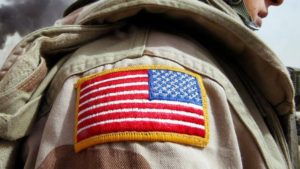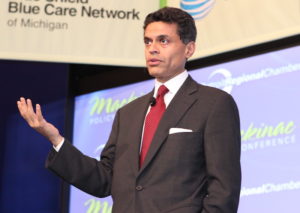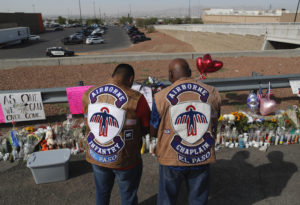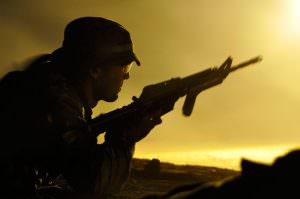Amy Wilentz on Rachel Corrie
The just-published journals of Rachel Corrie, killed by an Israeli bulldozer, reveal her to have been a natural-born writer and a spirit full of intensity and yearning whose lust for life and sense of justice made her untimely death all the more tragic.
By all rights, “Let Me Stand Alone” should not be an easy book to read. Doom hangs over this collection of the journal writings of Rachel Corrie, who was a 23-year-old American peace activist when she was crushed to death by an Israel Defense Forces bulldozer in Gaza five years ago. And yet most of this book whizzes by in a series of delights: in descriptions of autumn football games in Washington state, and ice in the winter mornings, of war seen on television, of the wind, of Corrie’s grandparents’ house in Des Moines, the used-book store in Aitkin, Minn., her mother tending to her dying grandmother, her own face. And this is all before the age of 14. When she was 2 years old, she looked at Capitol Lake in Olympia, Wash., her hometown, and said (famously, in her family): “This is the wide world, and I’m coming to it.”
It turns out that Rachel Corrie was first of all a miraculous child; then, an amazing changeling of a girl; later, a difficult, challenging, brilliant teenager, and finally a demanding, charismatic young adult. Most important, she was a very able writer from a remarkably early age — about 10 years old, or 11 — an immediate, sensory observer, a good thinker, a rebel eventually. Above all, she was always human, never caustic (though she could be casually cruel to her parents, like all adolescents), and almost painfully alive to the give and take within families, among friends, between lovers, between siblings. She would go on to carry this feeling of connectedness to its logical extreme, because among the many things she was, Rachel Corrie was above all a natural extremist. She felt other people’s pain really and truly. As a grown-up, she feels connected not only to her parents, her sister, her unpredictable boyfriend and to others around her, but also to the mentally ill people with whom she worked in Olympia (“Don’t we all hear voices?” she asks her journal), and to the world. She also felt responsible for mankind’s lapses in humanity. That natural extremism and dedication to goodness took her into activism, and that’s how she ended up in Gaza — her shoulder blades, face, six ribs and spinal cord broken under the blade of that bulldozer.
But this book is not all about Rachel Corrie’s progression toward this terrible fate. It’s really three books in one. It’s a coming-of-age book about a certain kind of American girl, an upstanding, stalwart child of the Pacific Northwest, who loves freedom the way a pioneer child would, as part of the normal course of things. As a child, Corrie is like a Mark Twain character: You would not be surprised to see her in a thin dimity dress or in smocked gingham, with her blond hair in a braid, playing barefoot in the reeds near Huck’s river. As she gets older, she flirts with all the syndromes American girls now flirt with: drinking, smoking, anorexia. “Then she cursed herself for spending so much time thinking about herself,” she writes. But she survives; she’s an American survivor — and if you didn’t know beforehand the wrenching end of her story you would assume she could survive anything. The first half of the book reads like a best-selling Oprah-endorsed literary tell-all memoir (or anyway, almost all … there is an editorial hand involved in culling the journals, and that hand belongs to the Corrie family), written by an exceptionally creative and gifted girl.
“Let Me Stand Alone” is also a writer’s notebook. One can easily imagine it being read in a workshop. It includes poetry, and a long (some might say too long) half-fiction, half-confessional love story; rapturous descriptions of nature, and loving details about Olympia (having read “Let Me Stand Alone,” I now vote Olympia, Wash., the No. 1 city to visit in the United States, although I haven’t been there). A love poem about driving on the highway with her mother and seeing a flock of herons is particularly accomplished; here’s a bit of it:
anonymous gray herons their forms slip into your dream vocabulary your eyes save them deep in linty pockets and amber jars but their beaks are needles and they don’t notice you pass eyes with no pupils in constant dialogue, heron with itself they send messages with their outlines they glide into the horizon while you’re forming your reply
Here’s another section, from the middle of the book, where Corrie imagines the salmon of Olympia: “There have been so many times over the last several years when I’ve wanted to be anywhere except Olympia. I think I’ll be gone within the next year. It’s hard to explain it. … The salmon talked me into a lifestyle change. The salmon beneath downtown Olympia are church. Years ago a group of us doing salmon restoration work rode a bus down to the East Bay Marina and observed the hole in the bulkhead. Salmon swim into that hole. Salmon have to make it all the way up Plum Street in that hole. …. Once you know there are salmon down there it’s hard to forget. You imagine their moony eyes while you walk home from the bar in your slutty boots. You’re aware of them down there when you ride around in somebody’s car — fanning their gills. It’s hard to be extraordinarily vacuous when you always have the salmon in the back of your mind: in that pipe down there. …”
In this case, it’s only the pitiable situation of fish that provokes Rachel Corrie’s empathy and political action. For “Let Me Stand Alone” is, as well as a coming-of-age book and a writer’s notebook, also the autobiography of an activist. We watch as Rachel emerges from her lovely, hypersensitive, receptive and involved girlhood, and we’re cheering her: because she is really so good, so kind, so open and sensitive to suffering and injustice — like an old-fashioned saint, a Great Person in the making. I couldn’t help thinking of Joan of Arc as I read along (partly, no doubt, because of the seeming physical resemblance to La Pucelle, a light-haired wisp of furious girlhood). Belief, Christian virtues of selflessness and self-denial, charisma, fervor, a thirst for a cause — Rachel Corrie always had the makings of a martyr. When she gets to Gaza — a section that represents about a fifth of the book, and, of course, its finale — Corrie’s writing changes radically, with all that the word implies. At first, the change is subtle. Everything is reduced. Her range of emotion contracts, and instead of pure love, angry love, needy love and furious love, Rachel, in the face of the plight of the Gazans, feels only angry love. Instead of frustration with herself, her parents, Olympia, the Bush administration, school, siblings, friends, boyfriend, she feels frustration only at the Israeli government (a nice, broad target for this and other negative emotions, when you’re living in Gaza). She sinks into the reduced and shrunken emotional, intellectual and even physical space of the refugee; Corrie becomes a Gazan. In this sad final section, there were bits I had to skip, because the writing becomes so rote, so predictable, so propagandistic, so meaningless — and it was hard to see such a brave talent, such a wonderful person, become so flat and dull, so prescriptive and hortatory.
And yet I recognize Rachel Corrie in this section. I was young, too, when I had my first tête-à-tête with evil — for me, it was Haiti under Jean-Claude Duvalier and the various generals and civilian juntas that followed. Like me, Corrie was privileged, liberal, educated, literate, American: Naturally the hunger, deprivation and imprisonment of the Gazans among whom she decided to live is — and should be — too dreadful a thing for her to witness without responding in anger toward their oppressors, as the plight of the Haitian people was and remains for me. Rachel was even younger than I was at the moment of her first encounter, however, and she was a member of an organization in Gaza, the International Solidarity Movement. The ISM’s goal was — in part — to stop Israeli bulldozing of Gazan houses by presenting its people as human shields, facing down the scoops of the dozers. In Haiti, I was not part of any missionary group, and had the luxury of forming my own opinions in solitude. I wasn’t organizing a movement, as Corrie was. I did not want my entire social group back in the United States to come to Haiti to help me stop the mechanisms of oppression there, the way Rachel does in Rafah. Rachel took the humanitarian’s way, the activist’s way, the militant’s way. She begins doing press for the ISM, and her journal-writing and e-mail composition evaporate into a kind of boosterish stew of stereotypical (though not untrue) observations about Palestinian suffering and Israeli oppression.
“Time to go,” she writes in an e-mail. “Meeting with the Youth Parliament.” It’s like watching a lesson taught by George Orwell, with Corrie as the example. There in the border town of Rafah, facing the Israeli army, a gifted writer — still able to witness honestly and well, as we see in small glimpses — begins to remove from her work much of what is human, closely observed, specific and concrete, and substitute instead propaganda clichés that, even when true, feel meaningless and shopworn, and finally, tragically empty, especially in light of Rachel Corrie’s fate. Still, I can’t help admiring her committed work and her youthful engagement; the world might just possibly be a better place if more of us believed in humanity’s essential goodness, as Corrie did, and if more of us were willing to leave our gardens, BlackBerrys, malls and coffee shops behind and work for peace and justice. Her innocence is disarming: “The surreal thing,” she writes, a month and a half before her death, “is that we are safe. White-skinned people stand up in front of the tanks and they open their weird tank lids and wave at us.”
There is a sense of Auden’s “while someone else is eating,” in these final pages, of the evils that go on while we continue on with our doggy lives. “I have been in Palestine for two weeks and one hour now,” Corrie writes in an e-mail just a month before she was killed, “and I still have very few words to describe what I see. It is most difficult for me to think about what’s going on here when I sit down to write back to the United States. Something about the virtual portal into luxury. …” Her talk of “internationals” and “sister communities” may put you off, but the fact of her sympathy and dedication is inspiring. And, as Graham Greene wrote in “The Comedians,” his novel about Haiti under Duvalier, “Death is a proof of sincerity.”
Because the saddest thing of all about the decline in Rachel Corrie’s eloquence and description, and the simultaneous growth in her activism, is how very short the period of her involvement was. And how much truth, honor and respect was — deservingly — heaped upon her every political pronouncement by the brutality and vicious stupidity of her murderer’s crushing rubber tracks and slicing steel. When it mattered, no one lifted a lid and waved. “My back is broken, my back is broken” — those were Rachel Corrie’s last words.
That’s concrete and specific enough.
Amy Wilentz, a former Jerusalem correspondent for The New Yorker, is the author of “Martyrs’ Crossing,” a novel about Jerusalem, among other books.
Your support matters…Independent journalism is under threat and overshadowed by heavily funded mainstream media.
You can help level the playing field. Become a member.
Your tax-deductible contribution keeps us digging beneath the headlines to give you thought-provoking, investigative reporting and analysis that unearths what's really happening- without compromise.
Give today to support our courageous, independent journalists.







You need to be a supporter to comment.
There are currently no responses to this article.
Be the first to respond.